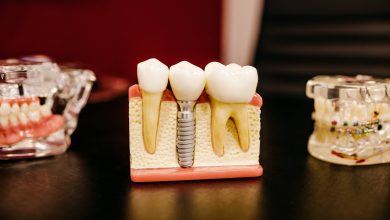How Periodontal Disease Affects Your Overall Health

Periodontal disease, commonly known as gum disease, can impact more than just your mouth. It affects your whole body. It may increase your risk of heart disease, diabetes, and even stroke. The inflammation caused by gum disease can harm your overall health. You might not realize it’s happening, as the signs can be subtle. Bleeding gums or persistent bad breath can be warnings. Many people ignore these signs, thinking it’s a minor issue. But gum disease can lead to tooth loss if untreated. Luckily, modern solutions like Woodbridge dental implants can help. These implants replace lost teeth and support oral health. Pay attention to your gums, listen to your body, and seek professional advice. Remember, healthy gums are part of a healthy life. Knowing how gum disease affects your health empowers you to take action. Your oral health is a reflection of your overall well-being.
Understanding Periodontal Disease
Periodontal disease begins with an inflammation of the gums, known as gingivitis. This stage is reversible with good oral hygiene. But untreated gingivitis can turn into periodontitis. This more serious form causes the gums to pull away from the teeth, forming pockets that become infected. The body’s immune response to this infection can destroy the bone supporting the teeth.
Links to Heart Disease
Studies show a connection between periodontal disease and heart conditions. Bacteria from your mouth can enter the bloodstream and attach to heart vessels, increasing the risk of cardiovascular problems. The American Heart Association highlights this link, emphasizing the importance of oral health in preventing heart disease. For more information, visit the American Heart Association’s website.
Diabetes and Gum Health
There’s a two-way relationship between diabetes and gum disease. High blood sugar can worsen gum infections, and severe gum disease can increase blood sugar, making diabetes harder to manage. The Centers for Disease Control and Prevention (CDC) reinforce the importance of dental care for people with diabetes. Visit the CDC’s page on diabetes management for more information.
Impact on Respiratory Health
Gum disease can even affect your lungs. Bacteria from diseased gums can be inhaled into the lungs, leading to respiratory infections like pneumonia. This is particularly concerning for those with pre-existing lung conditions or weakened immune systems.
Signs of Periodontal Disease
- Bleeding gums during brushing or flossing
- Red, swollen, or tender gums
- Bad breath that doesn’t go away
- Loose teeth
- Receding gums
Preventing Gum Disease
Prevention starts with good oral hygiene. Brush your teeth twice daily with fluoride toothpaste and floss once a day. Regular dental check-ups are essential. Dentists can spot early signs of gum disease and provide treatments to stop its progression.
Treatment Options
If you develop gum disease, professional treatment is crucial. Treatments vary based on the severity of the disease. Options include deep cleaning, medications, and surgery in advanced cases. Woodbridge dental implants offer a solution for teeth lost to disease, improving both function and appearance.
Comparison of Health Risks
| Condition | Risk Due to Gum Disease |
| Heart Disease | Increased risk due to bacteria entering the bloodstream |
| Diabetes | Worsened blood sugar control and increased infection risk |
| Respiratory Diseases | Higher risk of infections like pneumonia |
Conclusion
Understanding the wide-reaching effects of periodontal disease is key to maintaining overall health. By prioritizing your oral health, you protect your entire body. If you notice any signs of gum disease, seek help promptly. Knowledge and action are your best tools for health.





